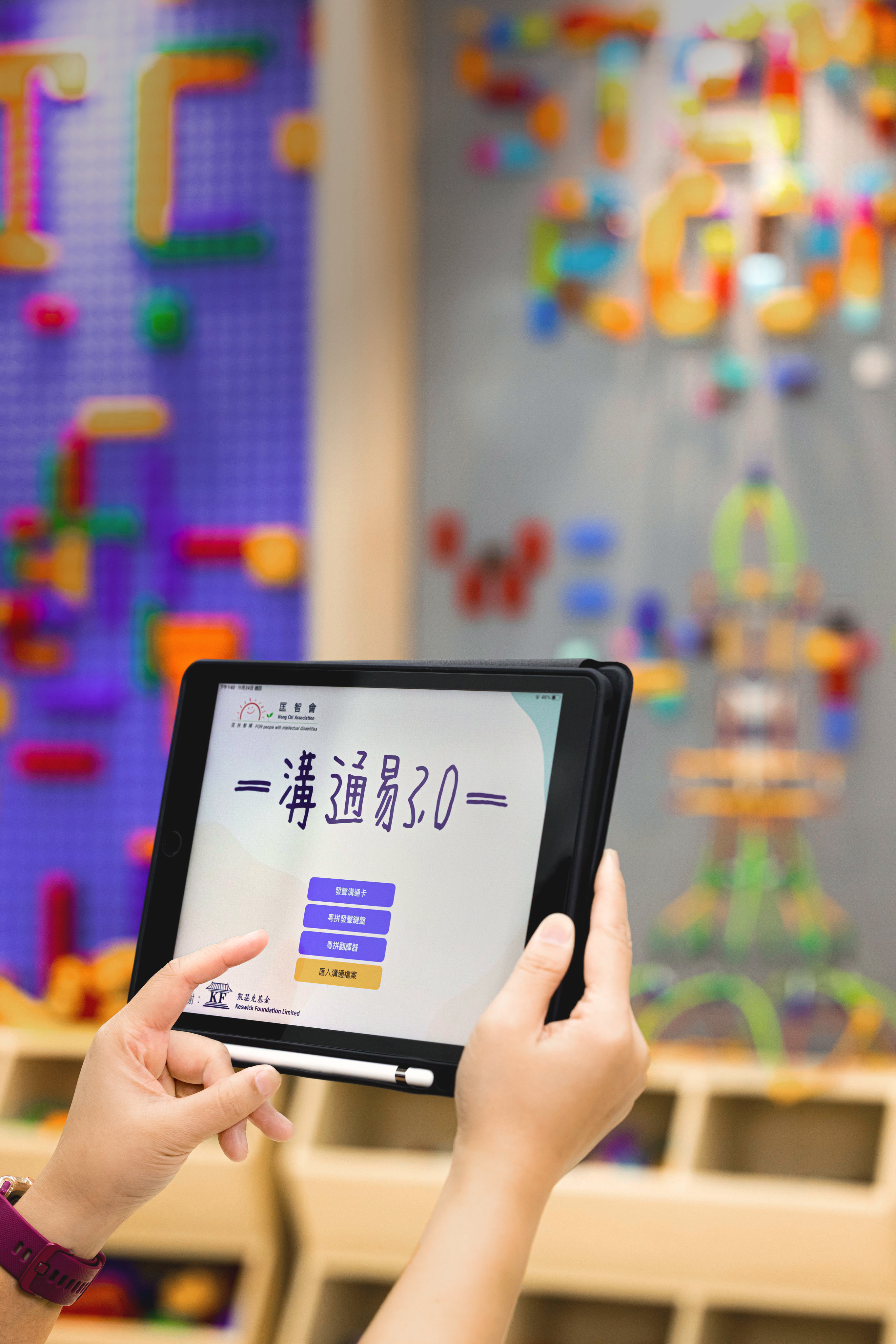Can We Talk

"When communication barriers are eliminated, students with low verbal ability can express more than we can expect."
Students with autism and low verbal ability are widely perceived as difficult, possess poor social skills and live in a world of their own. The key factor underlying these negative societal attitudes is that these children have difficulty mastering verbal skills to express their thoughts and ideas. When children are socialized through language and are socialized to use language. Children with poor verbal skills are often misread as lacking personal thoughts and feelings which makes them feel misunderstood and isolated, thus missing plenty of learning opportunities.
Finding Communications Tools
In order to bridge the gap over the autism cliff and into the world, a group of speech therapists from Hong Chi schools introduced Hong Kong’s first Chinese "Picture Card Resource Kit" in 2000 to facilitate students to express their needs and feelings. The team subsequently developed a "Communication App" in 2013 through digitalizing the picture cards and adding photo-taking and audio-recording features. The Hong Chi team upgraded the application to "Communication App 3.0" this year and two notable features, "Jyutping Sounding Keyboard" and "Jyutping Translator" were added. These features provide an effective way for students of different abilities, especially students who prefer using digital devices to communicate with others.
Benefits of Using Jyutping
Jyutping codes are formed by initials, nuclei and codas. This method is easier to learn and facilitates students to express their thoughts by directly inputting words and characters that they hear. However, because of the limited source of Jyutping textbooks and varying levels of learning capabilities among students, teachers have to spend extra effort on preparing appropriate and interesting learning materials to assist students with different learning abilities in establishing a strong Jyutping foundation. "All students start learning vocabulary in the Jyutping dictionary and practice usage in Chinese lessons. Once they have acquired basic knowledge of Jyutping, small-group teaching will be arranged to enrich their vocabulary and consolidate what they have learned in class, thereby improving their communication skills," said Miss Ip, the school teacher of The Jockey Club Hong Chi School.
Also, Jyutping brings significant benefits to students with autism and non-Chinese speaking students. "Most students with autism are proficient in English which speeds up their learning of Jyutping codes that are formed by letters." Said Miss Li, the school teacher of Hong Chi Morninglight School, Tuen Mun.
"Non-Chinese speaking students communicate in English for most of the time. Using English as a means to learn Jyutping increases students' motivation to learn. The spark was ignited and some students have continued self-study Jyutping after school hours," said Miss Ip. Most parents are very supportive of their children in learning Jyutping. "They know their children have to join the bridging programme and transit to adult service in someday. The bridging programme is conducted in Cantonese so the sooner they learn Jyutping, the better they can catch up on their studies."
Making Good Progress
Students type characters and words through Jyutping to share their thoughts in fragmented pieces. Then they start writing choppy sentences and subsequently combine them into long sentences to express their inner feelings and thoughts. "The sounding keyboard facilitates students to pronounce input words, and thus improve their speaking skills. When they can text and speak fluently, their willingness to communicate with others and self-assurance will be greatly improved," said Miss Li.
"This app also helps non-Chinese speaking students speak better Cantonese. Being familiar with Cantonese, their class performances have gradually improved, and it brings convenience to their daily life too," said Miss Ip.
Barrier-Free Communication
The Jyutping keyboard allows students to put their thoughts into words and helps them to break the shackle of being misunderstood as lacking personal thinking and feelings. When they feel that they are being understood, they have more self-confidence and are more willing to get along well with others.
"A graduate-to-be typed 'want to keep pet fish, bad economy, worry about money and student with moderate intellectual disability is hard to find a job' in class. When I was conducting the home visit, I told his father about this. His father was moved into tears because he never thought his son would worry about the family’s financial difficulties. Then he typed 'papa works hard to put bread on the table and he seldom talks about money problems at home' to comfort his father. He knows his father gives the family his best and he does not want to put any extra burden on his shoulders," said Miss Li.
Better communication can also resolve students’ behavioral problems. "A non-Chinese speaking student used to throw a tantrum in the corridor when the school speech therapist brought him to the classroom. He didn’t listen and was lying on the floor. But the situation changes after he has learned to type. When he began throwing tantrum, he was given an iPad to type his message on the keyboard. He told us he wanted to be around his favorite speech therapist and not wanted to enter the classroom," said Miss Ip. "Another student without verbal ability started typing his feelings with simple words which helps regulate his behavior."
Gaining Recognition
Communication App 3.0 not only enhances students’ quality of life and learning, but also receives recognition in the Information and Communications Technology Industry. The app has been awarded the Smart People (Smart Inclusion) Bronze Award in the Hong Kong ICT Awards recently. In the future, Hong Chi team will continue exploring and enhancing the functions to create a communication barrier-free channel for students in need.
